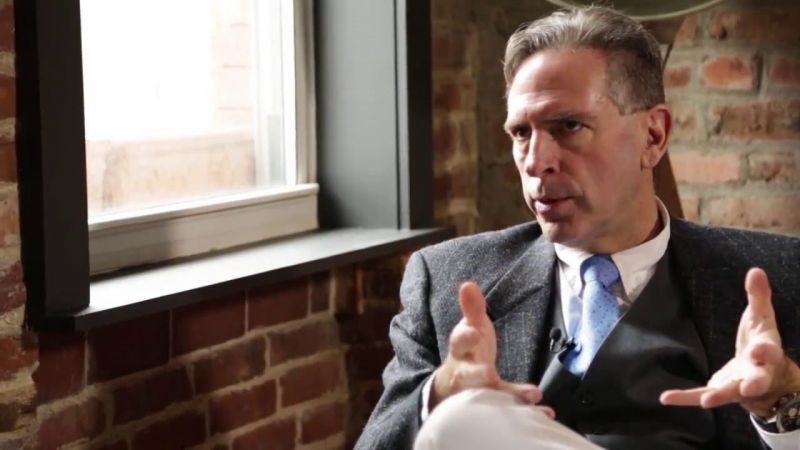Language as an Antidote to Shame: How Naming Our Symptoms Can Help Minimize Them
Our words make a difference.
Written by Meg Walters

01 Internalizing shameful language can prevent people from seeking treatment and addressing their symptoms.
02 Engaging with community and finding the right language helps to eliminate the shame that comes with having a mental disorder.
Mental Health America recently found that more than half of Americans with a mental illness don’t receive the help they need. It’s no secret that stigma plays a dangerous role in how our society treats people with mental health conditions. However, lesser talked about, is what happens when stigmas are internalized and affect personal journeys towards recovery.
This problem doesn’t discriminate. It can affect people from every walk of life, including mental health professionals. Linda Gask, a retired psychiatrist and author of Finding True North, was in training to become a psychiatrist when she began to experience classic symptoms of depression and anxiety. At first, she was hesitant to seek help.
“I thought, ‘I’ll never be able to become a psychiatrist, because if I feel this way then how can I possibly help other people?’” she recalls. “I think that at first I certainly felt a lot of shame.”
Linda’s struggle to open up about her mental health is not unusual. As Wulf Rossler explains in a 2016 report in EMBO, mental illness has historically been linked to harmful stereotypes and prejudices. For the past century, people with mental health disorders have been treated differently by peers, colleagues, and institutions.
The American Psychological Association reports that in recent years, people have become more open and accepting of mental illness, with 87% of American adults believing that having a mental disorder is not something to be ashamed of as of 2019.
However, when it comes to seeking help, people still find themselves unable to open up out of fear. Rossler calls this self-stigma. He writes:
“Self‐stigma usually describes a process in which an individual with mental illness internalizes the stigma and then experiences diminished self‐esteem and self‐efficacy, limiting prospects for recovery. Social psychologists argue that this process begins even before the person is afflicted with a mental illness because it is during that period that he/she usually learns about and internalizes culturally disseminated stereotypes about such illnesses.”
Self-stigma, or shame, can stop people from acknowledging their symptoms to others or even to themselves. We spoke to Dr. Andrew Lapa, a psychiatrist at Ocean Recovery Center, who explains that many of his patients display signs of self-stigma and shame.
This stigma, he explains, comes from the language we use in reference to mental health in causal settings. He adds that the media’s portrayal of mental illness has also contributed to the problem.
Stigmas can stem from a wide variety of sources, one of which is a lack of informed discussion and adequate language to describe our experiences and symptoms. Learning to use clear, specific terminology can be transformative for people with self-stigma surrounding their mental health challenges.
As Dr. Lapa explains, language can either help or hinder a person. Being exposed to sensitive language can help make a patient feel safe. Conversely, certain slang terminology, like “nuts” or “happy pills,” can have a negative effect, and further enforce ingrained stigma, forcing people to retreat further into their shells.
As a therapist, Dr. Lapa tries to use language to make patients feel safe and blame-free. One method he uses is “parallel speech.” He can notice and mimic a client’s use of descriptive language to help them feel accepted and trusting.
“However,” he clarifies, “a client can also refer to themselves as ‘nuts’ or a ‘victim’ and it is here where we draw the line, as it is here that this language when replicated, reinforces this stigma.”
In other words, when therapists offer an open, understanding environment and find a shared language with their clients, they can help them to slowly peel away at the layers of stigma that are blocking them. Of course, on the flip side, it’s a therapist’s job to notice and avoid negative language that reinforces stigma and hinders the recovery process.
Related Conditions
Mental health organizations are also becoming more aware of how societal stigma surrounding mental health can lead to shame that effectively silences people — and how informed language can help with the recovery process.
We spoke with Martin Warne, who works at the Ohio branch of Mental Health America about how they are attempting to use positive language to help people open up.
The organization tries to use sensitive language that takes away any sense of blame or culpability. Warne explains it as “focusing on the wellness not the illness.” Instead of calling someone “bipolar,” it’s more helpful to refer to them as “something living with bipolar disorder.”
In fact, MHA is hyper vigilant about using sensitive language in order to help their patients. Instead of calling someone an “addict,” they’ll call them a “person in active addiction.” Instead of referring to a “relapse” they’ll refer to a “recurrence.” As Warne notes, certain terms can be loaded, so choosing the right words and phrases can have a hugely positive impact.
Of course, conversations with a therapist are only a small part of how language can help patients struggling with mental illness. Communication with peers can be of equal importance — in fact, in some cases, it can be even more effective.
As Warne explains, MHA is proud to offer a successful peer support program that pairs individuals with others who have gone through similar struggles with mental health conditions.
The question remains — does shifting our focus to the language we use to talk about our own mental health really help?
In Linda Gask’s case, it certainly did. She sought professional help for her symptoms after learning about depression in her studies and began her journey towards recovery.
As she recalls, her first therapist was instrumental thanks to his use of familiar, descriptive language. “He was prepared to talk and not just kind of talk in medical jargon,” she recalls, “but to actually have conversations.” This was a skill she took with her into her own practice.
Throughout her career, Gask has continued to learn about the importance of language in all stages of recovery, from the initial stage of reaching out for help to the latter stages of managing a mental health condition.
In the past 10 years, she’s been increasingly interested in social media’s potential to provide a platform for important, open conversation. “There’s a whole group of people I have conversations with and we do support each other,” she says. “We also explain things to each other to help each other understand things.” She has even received messages from young people who have thanked her for speaking up about her own journey online.
While using language sensitively is vital, so too is giving people a space where they can talk openly about their experiences, whether that be online or in peer support groups.
The team at Made of Millions has also experienced first-hand the importance of language in facilitating recovery and removing stigma.
For Emily Zaboski, an ambassador and volunteer, peer conversations have been imperative. “Having a clinical diagnosis or the proper terminology isn’t the only step towards recovery,” she says. “The opportunity to relate to others who have equally nuanced and challenging experiences can be comforting and illuminating for many.”
And as Aaron Harvey, cofounder and executive director of Made of Millions, explains, learning to use specific language to describe his symptoms helped him to get past his self-stigma. “I’ve always had what I considered to be ‘bad’ or “dark” thoughts. But when I learned to call them ‘intrusive’ thoughts, it helped me disassociate my identity from my thoughts,” he explains. “It allowed me to talk more openly with family, friends, doctors, and eventually, the media, because I had the language that set my values apart from my random unwanted thoughts."

Living with Intrusive Thoughts, Pure O
Shame comes from a deeply ingrained sense of stigma. In order to overcome it, most of us will need to unlearn a lifetime’s worth of negative, inaccurate portrayals of mental illness, both in the media and in our everyday lives.
Language can help us not only to readdress the age-old prejudices and stereotypes that cause stigma, but also to feel more confident about our personal mental health journey.
After all — if we can’t name our symptoms, how can we begin to understand them and ultimately recover from them?
Support our work
We’re on a mission to change how the world perceives mental health.



















